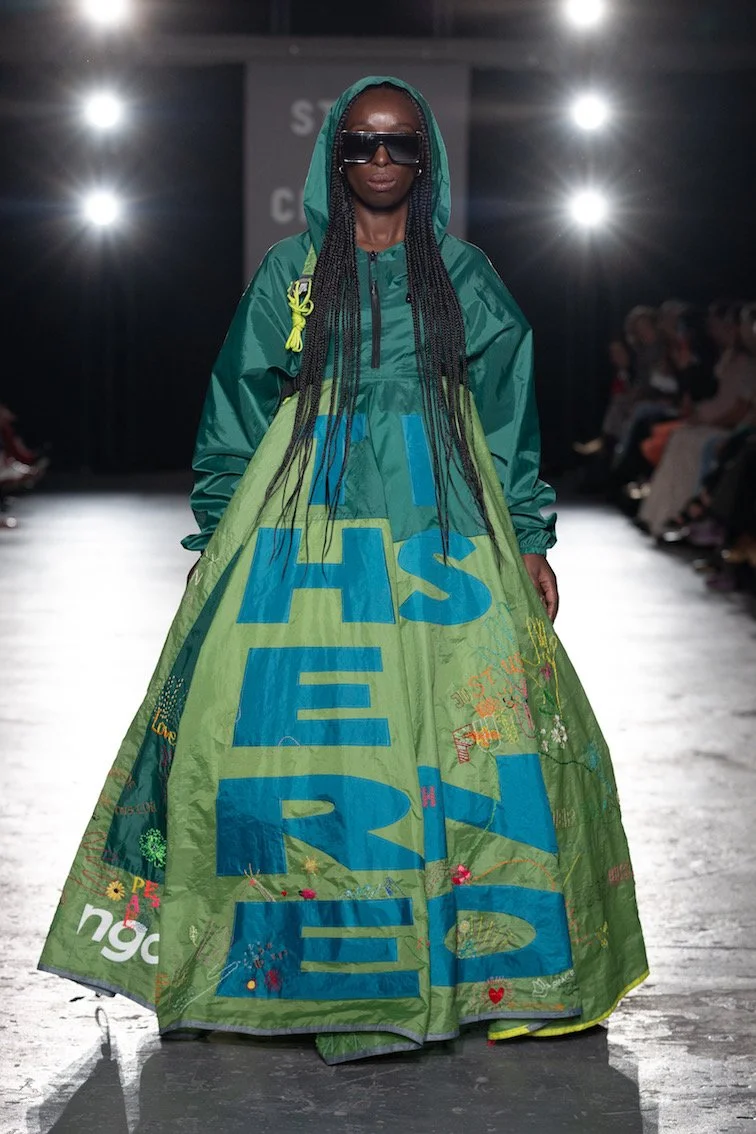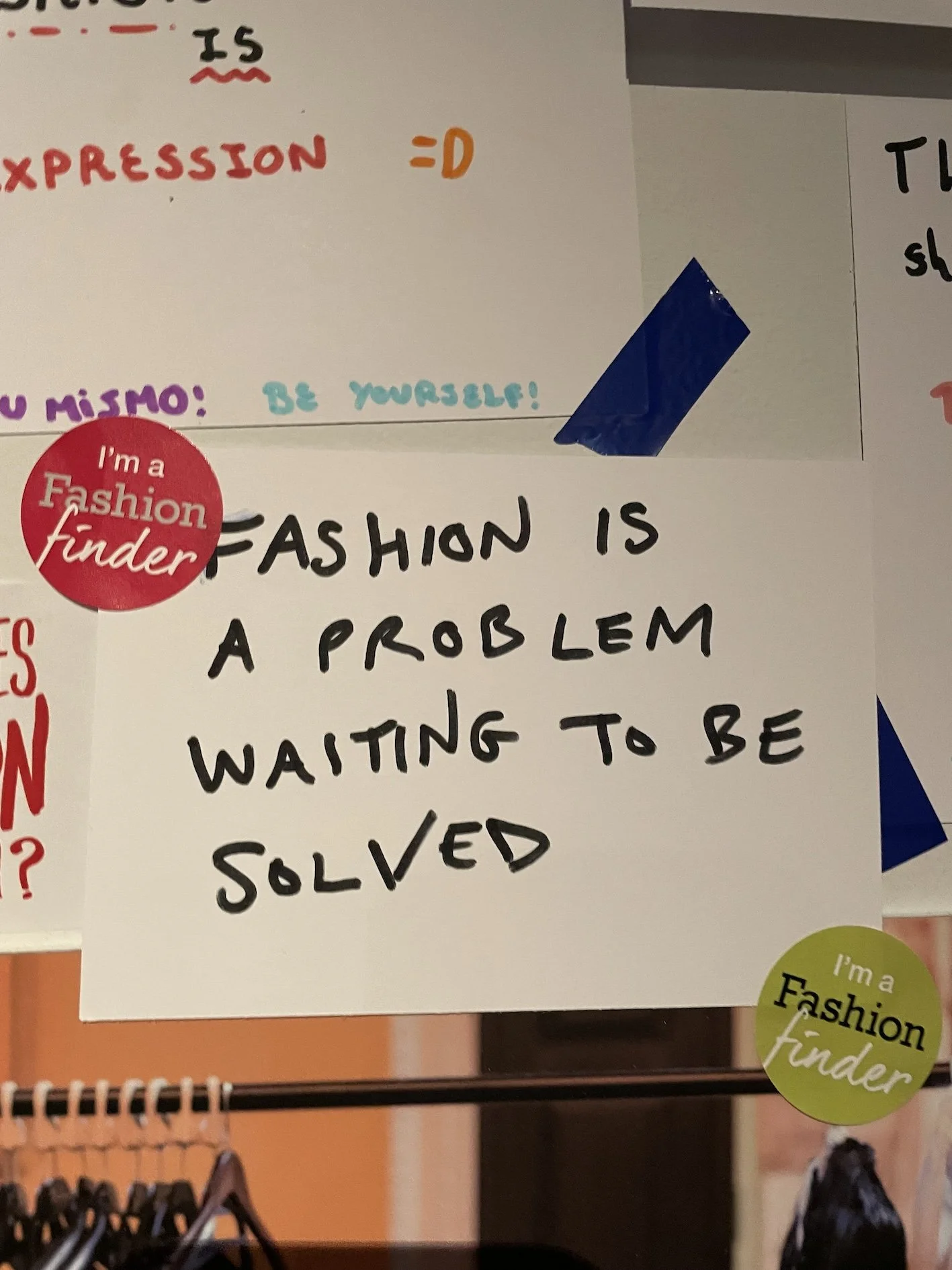SERIES 10
What can you smell right now? Can you identify it? How does it make you feel? Is it fresh, bright, pleasant? Nostalgic? Disgusting? Prepare to have your mind (not your nose!) blown, as Susan Irvine decodes her fascinating work.
This week's compelling interview is with manufacturer Shafiq Hassan, of the Echotex manufacturing facility in Gazipur, Bangladesh. Clare interviewed Shafiq in London, in September 2024, a little over month after peaceful students protests in Bangladesh toppled ex-Prime Minister Sheikh Hasina, then presiding over an increasingly corrupt and authoritarian regime.
So what's next?
“Key moments in our lives are charted by the textiles we bring close to our bodies," write curators Rebecca Evans the Leigh Robb in the catalogue to a major new exhibition at the Art Gallery of South Australia, RADICAL TEXTILES.
New York, London, Milan, Paris? So last season! It's time to spotlight less discussed design centres. This time, Dundee, Scotland, which is home the two emerging menswear designers you're about to meet - both recent graduates from the Jimmy Choo Academy…
It's not every day you get to sit down with a proper fashion world icon and pick his brains for free! Dear listeners, you're in for a treat this week, as Clare meets the one and only Jimmy Choo. This magic name in shoe design is now professor - he runs his own fashion school, the Jimmy Choo Academy in London's Mayfair…
You might have noticed this idea gaining momentum. Ecocide refers to the mass damage and destruction of ecosystems – severe harm to nature which is widespread or long-term. The idea is to criminalise it. And it's happening! It's become national law in several countries with many more discussing it. In March, the EU passed a law that criminalises actions 'comparable to ecocide' - a revolutionary legal development; the first law of its kind to be adopted by a political entity with substantial global influence. In September, Vanuatu, Fiji and Samoa submitted a proposal to the International Criminal Court for recognition of ecocide as a crime.
What does all this mean for fashion? Listen to find out!
Okay, brace yourselves...
Brands love to set sustainability goals. But what if it's all nonsense? What if net zero, the obsession with carbon, and the idea that renewables are taking over from fossil fuels, are all part of a fake green fairy tale that we tell ourselves because the alternative is too difficult to imagine. Or that corporations tell us so that they can keep on with business as usual.
WTAF? We know. It's... a lot.
Is it true? You decide, after listening to this week's guest.
Carole Collet on the role of a fashion designer today. Thinking purely about gorgeous clothes is so last season. Gone are the days when designers could consider only a collection, how it will sell and what the customer might be looking for.
Forward-thinkers are already beginning to take more holistic view and adopt a living systems approach. They’re asking questions such as, Can we make like Nature makes? How might fashion create nutrients instead of waste? How can we use biomimicry in sustainable ways? Program living systems to produce bespoke products? And, how can we build a truly regenerative system in place of the current regenerative one?
Happy Secondhand September! Six years ago Oxfam UK came up with the idea of using September to encourage people to: "Shop second hand to take a stance against fast fashion and dress for a fairer world." They say it's a moment to come together “to choose a more planet-friendly way to shop, and dress for the world you want to see." This week, Clare sits down with model-thrifter-filmmaker-activist Eunice Olumide, ahead of her walking in Oxfam's LFW show.
Rising Australian fashion star Liandra Gaykamangu calls Darwin home, but that's the big smoke compared to where she grew up in Milingimbi (Yurruwi) in the Crocodile Islands - albeit with a sojourn to the Wollongong surf coast. Now her print-led namesake brand is making waves in fancy places. This mum of three used to be a high school teacher and her fashion-forward design is winning her prizes.
For this episode, we’re in London visiting British journalist Tiffanie Darke to talk about her viral wardrobe challenge, The Rule of Five.
She’s also got a new book coming out in the US. What to Wear and Why, Your Guilt-Free Guide to Sustainable Fashion promises to get you "rethinking what clothes we buy, wear, and toss out, knowing that we can have a positive environmental impact while still looking good and dressing well”.
This one is refreshingly honest conversation with Danish knitwear designer Amalie Røge Hove about her much-loved label, A. Roege Hove, and the ups and downs of being an independent fashion business.
In the latest of our names-to-watch from CPHFW, Clare sits down with Finnish menswear designer Rolf Ektroth.
Last season, his hand-knits, made with Finnish yarn manufacturer Novita, were made available as pattern and yarn kits, so that home knitters could recreate his runway pieces. He loves macramé and hand embroidery, yet his collections have a modern street wear vibe that feels very polished.
If you're not in Copenhagen for fashion week, here's your (virtual) ticket.Over the next three episodes, we’ve got interviews with some of the most exciting new names to watch from the region. First up, Alectra Rothschild, whose show for her Masculina label was one of the most anticipated, thanks to last season's electric on-schedule debut…
We hear it all the time: fashion students are overwhelmed by overproduction and the ruthless churn of creative directors at the big luxury houses. How can they forge a creative path without contributing to the problem? If they decide to operate outside the system - crafting extravagant one offs, for example, or only making to order - how will they survive financially? What is the point of fashion if you can’t wear it? Danish fashademic Ana Lynge-Jorlén has some ideas…
Meet Ane Lyne Jorlen is the Danish fashion academic beind Alpha, a fashion incubator for directional emerging design talent from the Nordics.
Empathy, kindness, wellbeing, caring, sharing, repairing - not traditionally the first words that spring to mind when I say "FASHION!" But things are changing. Are we moving towards a new paradigm where who cares, wins? If we accept that the old ways (overproduction, exploitation, rampant shareholder capitalism, waste) don't serve us, why not redesign the whole thing along radical new lines? What might that look like?
Welcome to Series 10 of Wardrobe Crisis! We're kicking off with a conversation about the future of fashion, recorded live earlier this year, with Tamra Cincik, when Wear Next came out in the UK.

















